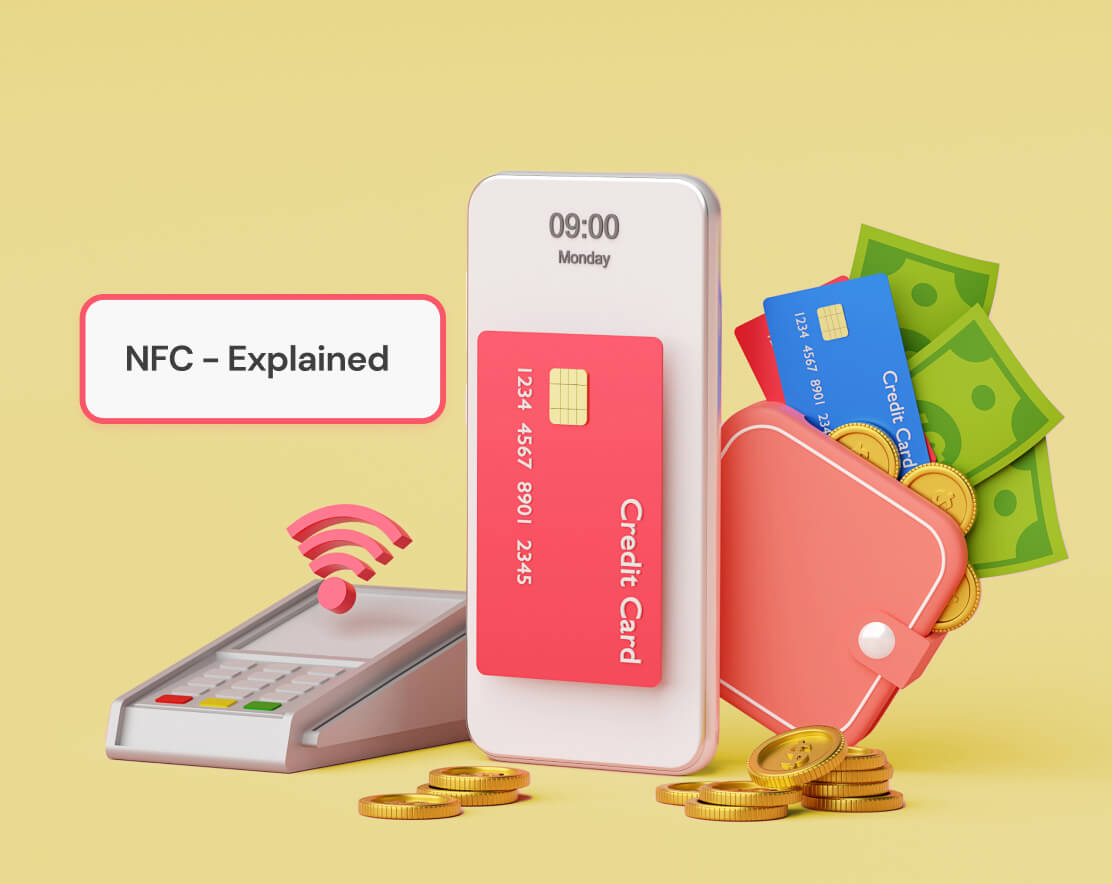Navigating the maze of mobile payment solutions can feel like a puzzle, but with the right approach, it’s a puzzle you can solve with ease. How to choose a mobile payment platform involves more than picking the most popular option; it requires a careful blend of selection criteria to find the perfect fit for your unique needs.
From evaluating digital wallet features to analyzing costs and ensuring top-notch security, the ultimate guide I’m about to unfold will equip you with the essentials for making a savvy decision. We’ll dissect transaction fees, compatibility, security standards, and scalability to ensure your choice not only meets today’s demands but also positions you for future growth. Get ready to transform your payment experience into one that’s secure, efficient, and perfectly tailored for your business.
Understanding Mobile Payment Platform Selection Criteria
Weighing Selection Criteria for Mobile Payments
When you pick a mobile payment platform, think of it like choosing a new phone. You want one that fits your needs, is easy to use, and keeps your money safe. Let’s dive into what matters most.
First, ask, “What do I want my payment system to do?” Should it handle peer-to-peer payments? Or maybe support in-app purchases too? Know what you need before saying “yes” to a service.
Next, consider how it will work with what you already have. If you sell things in person, you’ll want it to play nice with your point of sale system. If you sell online, check that it works well with your website.
Remember, fees matter. Each time someone buys something, the platform might take a small part of the sale. Look at different platforms, compare their transaction fees, and choose one that doesn’t eat your profits.
User experience is huge. If your customers find it hard to pay, they might not buy at all. A good platform is one that makes it simple for anyone to use.
Evaluating Digital Wallet Features and User Experience
Digital wallets are a big part of mobile payments. They’re like magic pockets that keep your money ready to use with just a phone tap.
Security is top priority. You want a wallet that guards your cash like a secret agent. Look for security standards like encrypted transactions to keep hackers away.
Ease of use is next. The digital wallet should be as easy to use as a real one. The app should be clear and simple, so you and your customers can use it without any stress.
Also, it should be a friend to all devices. Whether your customers use an old phone or the latest tablet, they should be able to pay without trouble.
For stores selling to the world, check international transaction support. This lets your customers pay in their own currency and keeps everyone happy.
How fast does it work? Payment processing speed is a game changer. Faster is better. No one likes to wait.
Lastly, look at the customer service quality. If something goes wrong, you want help, and quick.
In a nutshell, when choosing a mobile payment system, find one that ticks all your boxes. It should be safe, fast, work with what you’ve got, and be friendly to your wallet. Your customers will thank you, and your sales will show it.
Analyzing Costs and Compatibility
Transaction Fees Comparison and Budgeting Strategies
When picking a mobile payment platform, look at the transaction fees first. High fees can eat into your profits. Your goal is to keep more money in your pocket. So, start by comparing fees across different platforms. Ask yourself ‘How much will it cost me per transaction?’ and ‘Are there monthly charges or hidden fees?’ If you can’t find clear pricing online, reach out to customer service.
After you know the costs, make a budget. Calculate how the fees will affect your business based on how you’ll use the platform. Consider how often you’ll make transactions or if you’ll need things like recurring billing.
Remember, the cheapest option isn’t always the best. Balance what you can afford with the quality you expect. The platform should be cost-effective, not just cheap.
Ensuring Compatibility with Devices and Contactless Options
It’s important your mobile payment system works well with different devices. Both yours and your customers.’ Check that the platform supports a wide range of smartphones and tablets. This is key for a smooth user experience. Also, can customers use it on their devices without hassle? A good payment platform should make paying easy for everyone.
NFC technology in payments is now a must. It lets customers pay by just tapping their phone. This tap-to-pay option is growing fast, and you don’t want to be left behind. Make sure the platform you choose supports contactless payment options like NFC or QR code scans.
If you also sell in person, consider point of sale integration. Your mobile payment system needs to sync with your mobile POS for easy sales tracking. This helps with inventory and accounting too.
Don’t forget about customer service. Sometimes, systems can have issues. You want a platform that offers fast and helpful support when you need it. This keeps your business running smoothly.
Lastly, if you sell internationally, ensure the platform can handle it. Look for multi-currency processing and language support. This lets you grow your business beyond your borders with ease.
Remember, the right payment platform is more than cost; it’s about value. It’s about finding a balance between what you pay and what you get. It’s making sure it’s a good fit for your devices and that it won’t hold you back as your business grows. Look for a platform that lines up with your needs today and your plans for the future. And always read up on payment gateway reviews to hear from others like you. They can tell you a lot about what to expect.
In conclusion, take the time to analyze costs and ensure compatibility. Doing so will help you choose a payment platform that best suits your business, supporting your growth in the long run.
Prioritizing Security and Customer Support
Security Standards for Payment Gateways and Fraud Prevention
When you pick a mobile payment platform, think about how it keeps your money safe. Good platforms follow strong security rules. They protect your details when you pay. This means they use tough ways to stop theft and fraud. They also follow laws that keep your data secure.
The tech that keeps your payments safe is called encryption. This scrambles your info so only the right people can read it. The best payment apps use this all the time. They also watch for any odd activity in your account. If they see it, they’ll check it’s really you making the payments.
Fraud prevention is serious business. You want to know fast if someone tries to use your money. Good payment platforms will tell you right away if something’s not right. They’ll also help you fix any problems if someone steals from you. Having this support gives you peace of mind.
Assessing Customer Service Quality and Support Features
Customer service is just as important as keeping your money safe. Say you have a problem or question about your payment. You need folks who can answer fast and know what they’re doing. The best platforms have teams who are there for you anytime. They can help you through chat, email, or phone. They make you feel looked after.
You’ll also want to know how easy it is to get help if needed. Does the platform have a help center or FAQ section? Can you find easy steps to fix common problems? The best service means easy answers and quick fixes. Your payment app should make your life easier, not harder.
And what about when things go wrong? Say a payment doesn’t work or there’s a mistake. You want it fixed without headaches. Good customer support walks you through solving these issues. They’ll explain everything in simple language. They want you to be happy, and they work hard to keep it that way.
In the end, when you’re looking at mobile payment platforms, don’t just look at the fancy features. Check they take care of you and your cash. Remember, strong security and great customer service are a must. They keep your stress low and trust high while you pay on the go.
Integrating and Scaling Your Mobile Payment Solution
Importance of POS Integration and Mobile Payment Adoption
When you pick a mobile payment system, POS (Point of Sale) integration is huge. It lets you link up your sales data with the payment process. This means less trouble and more happy customers. Plus, you keep track of sales better. Now, making it easy for more people to use your payment system is key. That’s mobile payment adoption. You want a system that your customers will find easy and will want to use a lot.
Think about digital wallet features. They must be easy to use. Your customers should be able to pay with a tap. A good system works with all kinds of phones and tablets. You don’t want to miss a sale just because someone has an old phone.
Now, let’s chat about customer service. It has to rock! If something goes wrong, you need help fast. The best services give you quick answers and fix your problems in no time.
Scalability and Support for International Transactions
Your payment system should grow with you. Say you start small but then get big. You need it to handle more sales without any hitches. This is scalability. It means your system can get bigger just like your business.
For shops selling across borders, international support is a must. Can your system handle different types of money? It should. People from all over should be able to buy your stuff. This means multi-currency support and keeping fees low.
When you look at transaction fees, compare them! Some systems offer low fees, which is super cool. Think about what you need. Maybe a system with higher fees offers more. Like, they might have top-notch security or super speed in processing payments. Some have NFC tech that lets people pay by just waving their phone near a reader. It’s like magic, and it’s fast.
Let’s not forget QR codes and peer-to-peer services. They are getting popular. So your system should have these too. And for folks who buy the same thing often, like a monthly game pass, you want recurring billing. It makes life easier for everyone.
Here comes the serious talk about safety. Encrypted transactions keep people’s card info safe. Your system should have this. It’s like a secret code that nobody can crack.
Lastly, getting your payment system started should be a breeze. The easier, the better. Plus, you should be able to look at reports that show how things are going. These help you make smart moves in the future.
When you’re budgeting for your payment solution, remember, you don’t need to break the bank. But don’t go too cheap. You want to invest in a system that does a great job and is worth every penny.
Finding the perfect mobile payment platform takes some work. But think about what your shop needs. Look at how easy the system is to use, how safe it is, and how well it can grow with you. Pick the one that checks all your boxes!
To sum up, picking the right mobile payment platform is key. We looked at selection criteria, from what users want in a digital wallet to the costs you’ll face. Remember, cheap options can cost you more if they don’t work with your gear or lack security.
Security is a huge deal. Your customer’s trust is on the line. So is your money. Make sure your choice stands strong against fraud and has solid customer help ready.
Lastly, think about growth. Will this platform grow with you? Can it handle sales from around the world? A yes to these questions means you’re on the right path.
In closing, your best bet is a mobile payment service that’s easy to use, fits your budget, keeps data safe, and grows with your business. Choose wisely, and you’ll set yourself up for success.
Q&A :
What Should I Consider When Selecting a Mobile Payment Platform?
When choosing a mobile payment platform, consider factors such as transaction fees, security features, types of accepted payment methods, compatibility with your existing systems, ease of use for both your business and customers, and customer support provided by the platform. Analyze the needs of your business and research the reputation and reliability of the payment platform providers. Additionally, think about the scalability of the platform as your business grows.
How Secure Are Mobile Payment Platforms?
Security is a paramount concern with mobile payment platforms. Look for platforms that offer robust security measures such as encryption, tokenization, two-factor authentication, and compliance with industry standards like PCI DSS (Payment Card Industry Data Security Standard). Check for user reviews and any history of security breaches, and make sure there’s a clear policy on how the platform handles security issues and fraud.
What Are the Fees Associated With Mobile Payment Platforms?
Mobile payment platforms typically charge various fees, including transaction fees, monthly fees, setup fees, and fees for additional services like chargebacks or international payments. Some platforms may offer a tiered fee structure based on the volume of transactions. It’s important to understand all the fees involved and assess how they fit into your business model and profit margins.
Can Mobile Payment Platforms Integrate With My Existing Business Systems?
Integration capabilities are crucial for streamlining operations and maintaining consistency across various business systems. Check if the mobile payment platform can easily integrate with your existing tools, such as your point-of-sale system, accounting software, and e-commerce platform. Seamless integration can save time and reduce errors in your business processes.
What Customer Support Options Are Available With Mobile Payment Platforms?
A robust customer support system can be the lifeline when dealing with payment issues. Inquire about the types of customer support the platform offers – such as phone, email, live chat, or self-service resources – and their availability (24/7, business hours, etc.). Also, consider the platform’s reputation for responsive and effective customer service.



